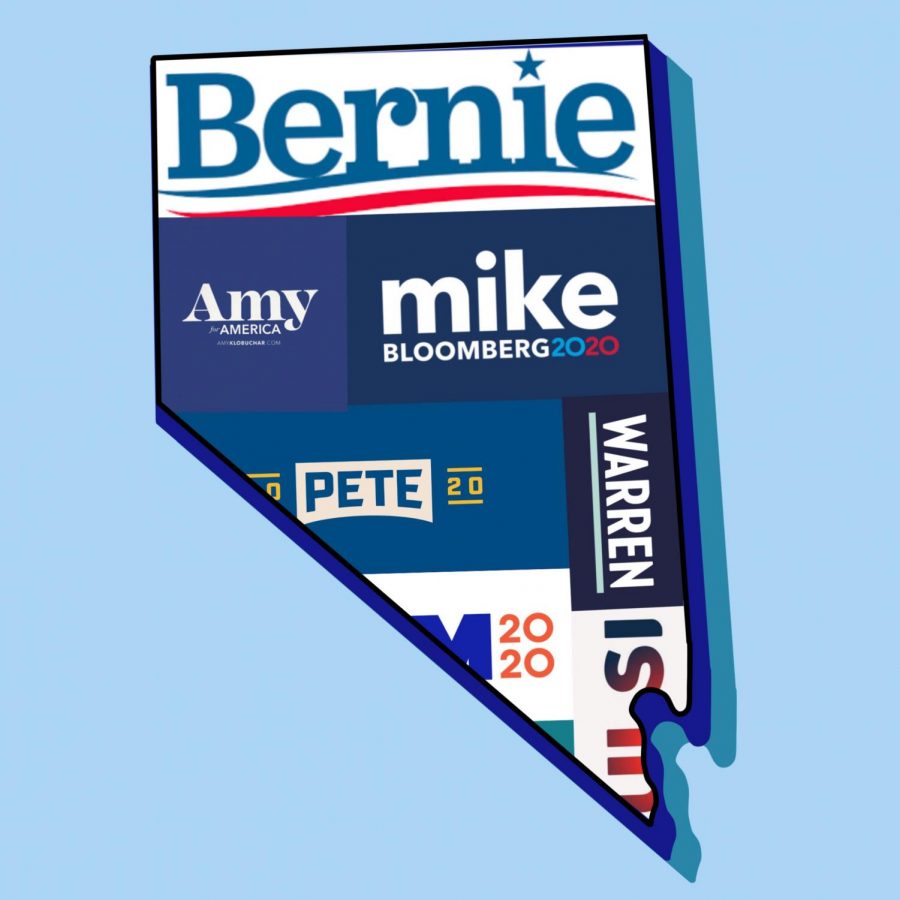Democrats are overthinking the election, and it might cost them
February 27, 2020
If the most recent Democratic presidential debates have taught us anything, it’s that the party might be exhibiting the most internal divisions since the late 1960s. Today, we seem to be witnessing a similar fight for the soul of the Democratic Party – but it’s not exactly clear where that soul lies.
Most candidates frame the 2020 race as a referendum on U.S. President Donald Trump’s presidency. Trump remains extremely unpopular among Democrats, so it makes sense that unseating him should take first priority.
However, by focusing their campaigns squarely on beating Trump, moderate candidates have split the first three primary states in a similar fashion to how Trump’s challengers did four years ago. Candidates Pete Buttigieg and Amy Klobuchar focus on their electability but pale in comparison to the name brand recognition of former Vice President Joe Biden or the financial resources of candidate Michael Bloomberg. All seem to cancel each other out as candidate Bernie Sanders wins a plurality of the remaining voters.
Moreover, the attention to Trump overlooks the prevalence of incumbency and economic conditions for predicting presidential results. Despite the abnormal nature of Trump’s behavior in office, this election might bear more similarities to 2012 than 2016, when a more inspiring message and an improving economy carried former President Barack Obama to victory despite strong Republican anger over the Affordable Care Act and other policies. Now, Trump is extremely unpopular outside of his own party, but a good economy – and maybe a fear of Sanders’ revolutionary plans – might carry him to a second term.
Instead of finding a candidate who is equally qualified, inspiring and electable, this primary contest has turned into a combination of embarrassing shouting matches and frustrating purity tests.
Some points made in last week’s Nevada debate raised legitimate points alongside traditional debate zingers. At the same time, the debate also provided criticisms wholly unrelated to a candidate’s electability or qualifications as president. Sanders criticized Buttigieg for accepting donations from billionaires, while Bloomberg labeled Sanders’ message as “communism.” The former jab attempts to tarnish Buttigieg as a candidate who has sold out to the rich, as if a few donations disqualify his candidacy. The latter is even worse, playing into fear tactics Republicans of the past have used to make “liberalism,” let alone “communism” or “democratic socialism,” a dirty word.
Bloomberg’s record also warrants criticism, and his poor debate performance shows that he might not be able to parlay his enormous financial advantage into a winning message. He seemed condescending on stage and has been deservingly panned because of it. Yet one of the many complaints against him is that he is a former Republican, conveniently ignoring that this also describes candidate Elizabeth Warren and 2016 nominee Hillary Clinton.
As Sanders takes the lead, it’s worth noting Warren’s criticism of the frontrunner in Nevada. “Instead of expanding and bringing in more people to help, his campaign relentlessly attacks everyone who asks a question or tries to fill in details about how to actually make [his plans] work,” Warren said. This sentiment should raise legitimate concerns about Sanders if he is the nominee. Democrats took the House of Representatives in 2018 not by making a sharp left turn, but by running moderate candidates in districts that wanted a check on the president. By advocating for policies that might be a political third rail, Sanders fires up his base but fails to capture those who want significant (though not immense) changes. Of course, if Democrats fail to win an already uphill battle for the Senate majority, Sanders wouldn’t have the chance to enact such policies in the first place.
As time runs out for a candidate to present a convincing alternative to Sanders, it’s concerning that Democrats – after spending the past three years eagerly awaiting the 2020 election – may nominate another polarizing candidate. The modern Democratic Party has always acted more as a group with mixed interests rather than one unified by liberal ideology, yet this has not stopped Sanders’ campaign from dominating the first three primaries. Still, I wouldn’t be surprised if this lack of unity doomed the party in November. Then again, after 2016’s results, all bets are off.






















